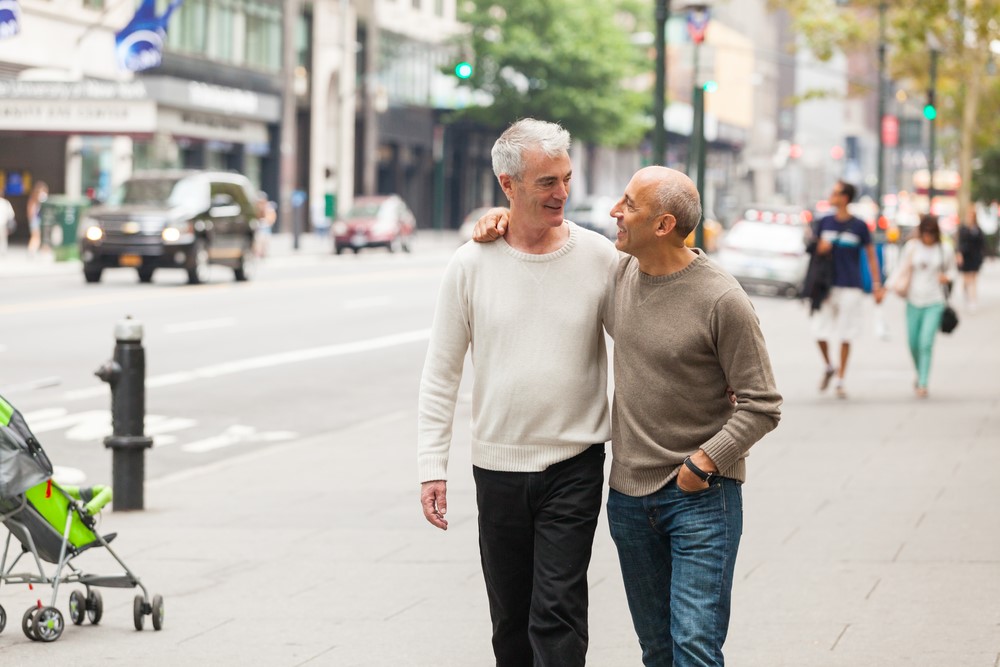
We’re now in Pride Month for 2021, which is the perfect time to talk about the gender and sexual diversities in our communities. Although it shouldn’t be the only time we do so. It’s time to celebrate these diversities.
There are currently more than 9 million people in the United States that place themselves in the category of LGTBQ. That’s no small number.
Of these, 2.7 million are around the age of 50, and another 1.1 million are 65 years of age or older. It is expected that this number will double over the next three decades.
Many LGTBQ individuals have faced discrimination, in one form or another, throughout their lives. Older LGTBQ seniors come from a generation that isn’t known for inclusivity. Some may have hidden parts of their identity or preferences in an attempt to fit in with the world around them.
Older LGTBQ individuals continue to be underrepresented in the media and even Pride parades. They’ve faced many challenges throughout their lives, some of which may influence their physical and mental health.
You might identify as LGTBQ or may be the primary caregiver in a LGTBQ partnership. Or, you probably know someone who is. Understanding the challenges can help you to support loved ones better, while also giving you direction for any advocacy that you want to get involved in.
LGTBQ Seniors, Isolation, and Poverty
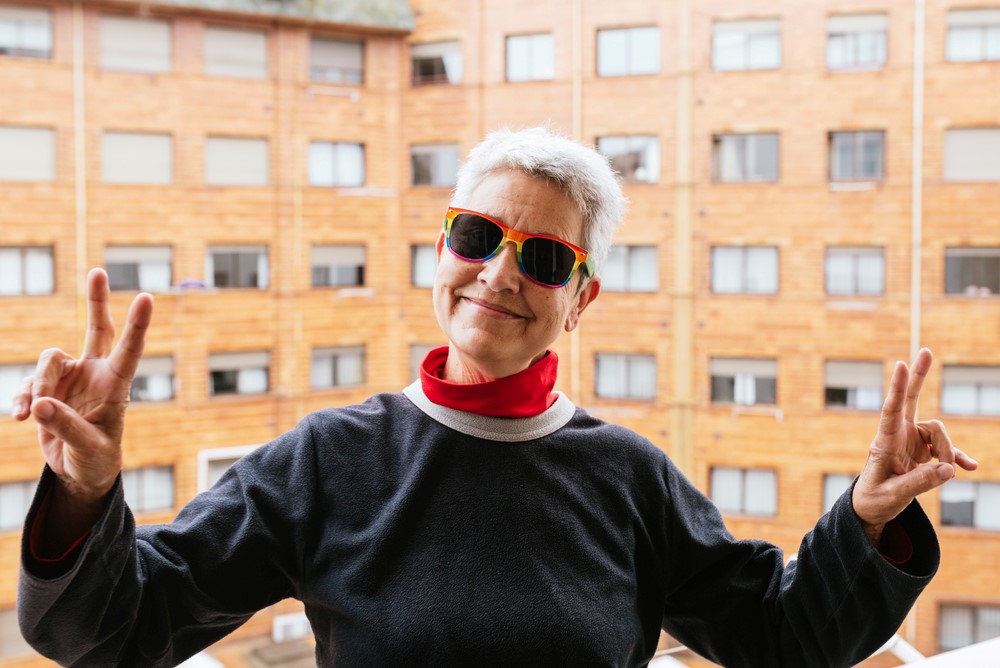
Isolation and poverty are both common challenges for seniors. Neither is surprising, as seniors have left their working lives behind them, along with many of the connections and financial benefits that come with being employed.
Those who have planned well and saved for retirement may continue to have good quality of life, but plenty of others don’t have the money they need. Seniors with serious health problems or the need for long-term care can find their finances stretched in other ways too.
Isolation doesn’t just come from the lack of work connections either. Decreased mobility is a factor too, making it more difficult for seniors to stay in touch regularly.
Being LGBTQ adds a whole new dimension to these circumstances.
- Seniors may feel isolated from their peers, especially when many of those around them are prejudiced.
- Many LGBTQ seniors were previously in heterosexual marriages in an attempt to deny their nature. Seniors who were in that position and broke away may now have rifts in their family, which limits their social support.
- While recognition and acceptance of LGBTQ members is rapidly increasing, LGBTQ seniors have spent most of their life without this type of acknowledgement. They don’t know how to take advantage of changes that are occurring, plus many will still carry the stress and fear that comes with needing to hide for so long. This affects their ability to trust other people, so it becomes more difficult to create and maintain friendships.
- Some LGBTQ seniors don’t have children, so may have less family support as they age.
- Similarly, some LGBTQ seniors may have been disowned by family members, including parents or even children.
- The clash between some religious perspectives and LGBTQ needs can make some seniors feel alienated from faith-based support.
- LGBTQ seniors may have experienced decades of social rejection, from friends, family, loved ones, religious communities, and the public. Such rejection takes its toll, making it harder for seniors to feel comfortable or to trust other people.
Discrimination
Growth in acceptance, rights, and recognition is always a slow process. There are still many examples of discrimination against LGBTQ people and this discrimination can affect people’s options for housing, healthcare, income, and much more, while also being harmful for their mental health.
Income, Poverty, and Health
For example, persistent discrimination puts LGTBQ seniors at greater risk for poverty. Older LGTBQ people who are 80 years of age or older are extremely poor. About one-third of LGTBQ seniors live at or below the federal poverty line of 200%.
It’s been well established that poverty has detrimental effects on health in countless ways from lack of access to healthcare and environmental factors – people with lower incomes are more likely to live in communities with greater access to firearms, drugs, alcohol, and toxic waste dump sites.
Research has also shown that LGBTQ individuals often suffer worse health than their non-LGBTQ counterparts, with higher rates of health-related problems and chronic conditions. There are many reasons for such patterns, including fear of being honest with medical providers, especially in relation to sexual health, along with increased isolation and healthcare discrimination.
Mental health is an area of particular concern, with LGBTQ people reporting higher rates of stress, depression, loneliness, and unhealthy behaviors.
In 2013, a report was published describing that the mental health of lesbian and bisexual women of age 50 was poor. The BRFSS study also found that bisexual women gain weight faster than gay women in their old age; and there is abundant research showing the connection between obesity and multiple chronic health conditions like heart disease. The study also pointed to lifestyle differences that may be at the root, noting that lesbian and bisexual women were more involved in alcohol and smoking. Not surprisingly, they also reported being depressed more/
Housing Challenges
LGTBQ seniors in relationships may face additional issues too, particularly in relation to housing. While there are laws in place to reduce this type of discrimination (we’ll discuss these shortly), LGTBQ couples still regularly struggle to find suitable housing. Indeed, housing is one of the biggest concerns for many such seniors.
A study by the Center for the Equal Rights of Older Couples found that same-sex couples who applied for a home in 10 states were not granted due to discrimination. According to one analysis, approximately 48% of older homosexual couple applicants face indirect discrimination such as housing availability and price differences.
Even when seniors are accepted into the housing they’re looking for, they may face prejudice from those living nearby. This can be a particularly strong issue in nursing homes and assisted living facilities, where the residents engage with each other regularly.
Indeed, many older LGTBQ individuals are concerned about long-term care, feeling that they may need to hide their identity to avoid discrimination and lack of care. Such concerns may be accurate too, as society’s treatment of LGBTQ people is still growing and evolving.
Legal Shifts in LGBTQ Support
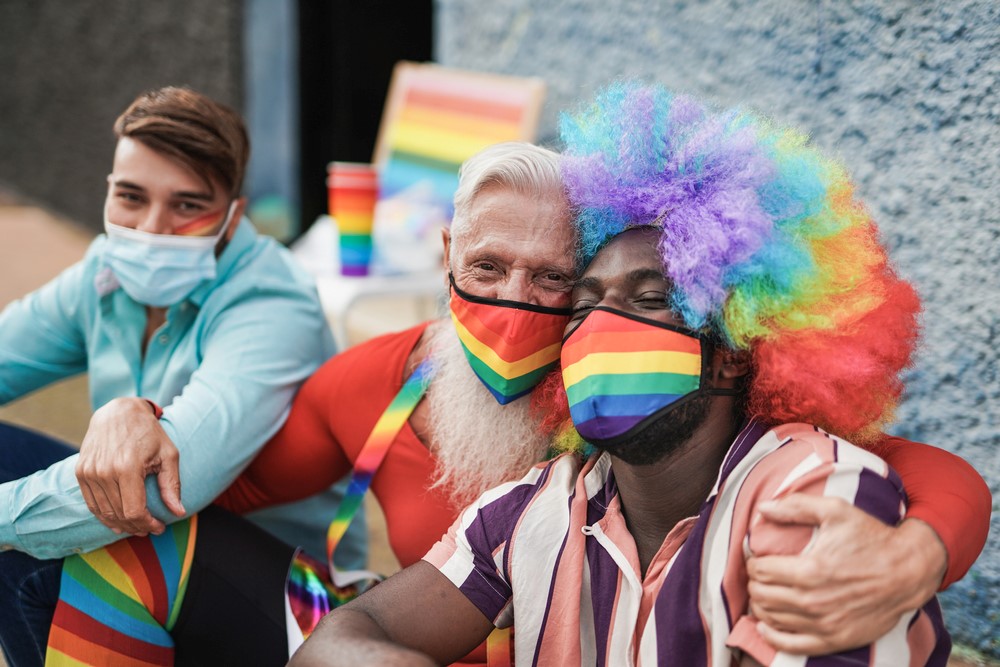
Thankfully, our government is making moves to support LGBTQ people, including LGBTQ seniors, with changes in multiple areas.
These shifts are all positive, but there’s likely to be strong resistance from some states and advocacy groups. As such, some changes may take time to filter through into society as a whole. There’s also the risk that some states will seek to overturn federal LGBTQ policy changes.
So, while there’s plenty to celebrate, the threat of reversals will hang over the heads of LGBTQ seniors for quite some time.
LGBTQ Healthcare Protections
Just this month, Biden announced that he is committed to protecting the rights of gay and transgender people in healthcare, by reversing an anti-LGTBQ law that was put in place under the Trump administration (he’s actually reversing a reversal of a law introduced under Obama).
By doing so, Biden is enforcing legal protections against healthcare discrimination for gay and transgender people.
The shift is a powerful one, meaning that healthcare staff are legally obligated to treat gay and transgender people in the same way as any other patient. Hard to believe human decency has to be legislated.
Housing Protections
There are many laws that help protect seniors from housing discrimination, including ones at the federal, state, county, and local levels. Some of these laws are broad, while others may apply just in specific situation.
In particular, the Fair Housing Act prohibits discrimination based on sex. Federal laws and court rulings are increasingly recognizing such protections as applying directly to LGBTQ individuals. Other laws also protect seniors against discrimination based on sex, including discrimination in housing and medical care.
And, in 2021, the U.S. Department of Housing and Urban Development officially released a memorandum reinforcing this view, stating that the Fair Housing Act does indeed apply to sexual orientation and gender identity.
Legal protections aren’t the only option. There have now been many LGBTQ-friendly senior housing communities developed. These don’t exclude non-LGBTQ individuals. Instead, they ensure that resident status isn’t based on sexual preference or gender identity.
Such communities can help LGBTQ seniors to find connections too, as the communities tend to have more LGBTQ individuals and couples than most other senior housing options.
There is even a national LGBT housing initiative, that aims to provide affordable and safe housing for LGBT seniors. Their site also provides plenty of information about LGBT aging and LGBT-friendly housing developers.
The Current State of Same-Sex Marriage and Parenting
Same-sex marriage has long been a loaded topic. Opponents’ arguments are often driven by religious beliefs and question the morality of those who seek a same-sex union, while supporters see it as a civil right.
Ultimately, in 2015, the US Supreme Court legalized gay marriage across the country. In 36 US states, gay couples were already allowed to marry through the courts. Following the ruling, the remaining 14 states had to lift their ban.
Then U.S. President Barack Obama welcomed the 2015 ruling, calling it a “major step towards equality“. This was a critical step toward recognizing spouses as authorized caregivers to support gay seniors during an illness, treatment, or hospitalization.
Even with this 2015 ruling, LGBTQ people continue to face many challenges that relate to marriage and parenting. In fact, there are still relatively few legal protections against discrimination for same-sex couples.
The issue can become even more complex when children are involved, as there remain laws that make parenting more difficult for same-sex couples, especially if they wish to adopt or provide foster care. Some of these laws make it difficult, if not impossible, for both partners in a same-sex relationship to be recognized as the legal parent of their child.
In the Workplace
In 2020, the U.S. Supreme Court ruled that a key provision of the 1964 Civil Rights Act also protects people who are homosexual or transgender.
The U.S. Supreme Court in a landmark ruling cited a key provision of the 1964 Civil Rights Act, which prohibits employers from discriminating against employees based on color, nationality, or religion.
This ruling means that people cannot be fired based on their sexual orientation or gender identity, which was not the case previously.
When Multiple Challenges Intersect
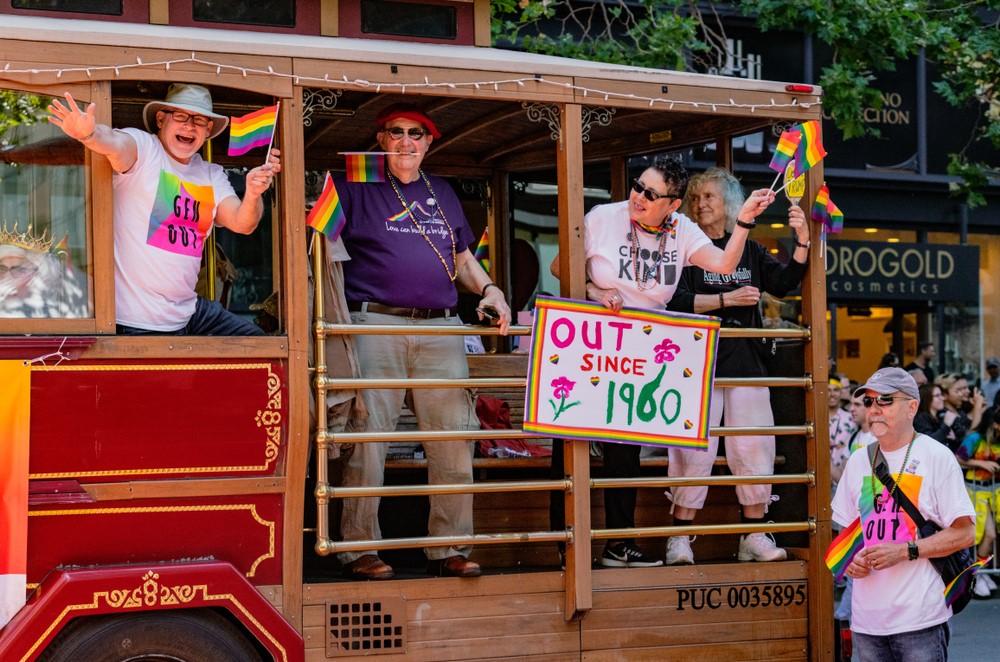
Some LGTBQ seniors face extra challenges because they belong to one or more other minority groups at the same time. For example, a homosexual African American, Asian American or Mexican American man or woman, single or in a partnership, may face much harsher scrutiny or violence. Sadly, foreign born and recent immigrant families often migrate from countries where there was even less tolerance and few protections in place.
Issues can be increased in other ways too, like if the senior is experiencing financial hardship, if they have a small social network, if they’re physically disabled, or if they have a mental illness. All of these issues can impact a person’s health and opportunities. Combine them with being LGTBQ and the difficulties become that much greater.
What Can You Do?
Civil rights changes take time. There are laws that need to be developed, passed, and implemented to protect the population. Each law is subject to plenty of debate and resistance, making the process even slower.
Plus, laws are only one side of the equation. Subtle, and occasionally overt, forms of discrimination persist, even when they’re illegal.
This means that as individuals, we need to step up. Regardless of your sexual orientation, your gender, or your views, why not practice love and acceptance? Everyone is deserving of respect.
You might not be able to fix the broader problems that people in this community face, but you can make life a little easier.
There’s one other thing.
If you have an LGBTQ senior in your life, then you can help to make sure that they’re living somewhere that accepts and embraces them for who they are. An LGBTQ housing community is a powerful option here. As discussed earlier, these communities tend to be inclusive, providing a safe environment where there is no fear of judgment.
If this isn’t an option, then it’s crucial to make sure that any housing choice is going to be accepting of the senior’s identity. Look for places that have zero tolerance for discrimination and that are open about using alternative pronouns. Long-term care facilities that already have practices in place for LGTBQ seniors are likely to be much more inclusive than those who do not.

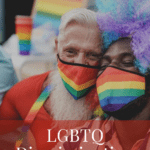
Leave a Reply